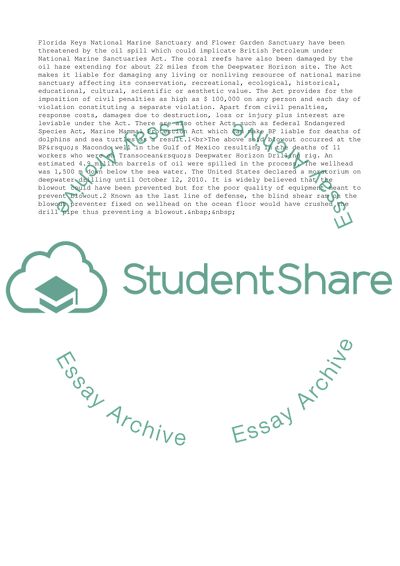Cite this document
(BP Global Oil Spill in Gulf of Mexico & Its Affect on Local Businesses Research Paper - 1, n.d.)
BP Global Oil Spill in Gulf of Mexico & Its Affect on Local Businesses Research Paper - 1. Retrieved from https://studentshare.org/business/1750767-bp-global-oil-spill-in-gulf-of-mexico-its-affect-on-local-businesses
BP Global Oil Spill in Gulf of Mexico & Its Affect on Local Businesses Research Paper - 1. Retrieved from https://studentshare.org/business/1750767-bp-global-oil-spill-in-gulf-of-mexico-its-affect-on-local-businesses
(BP Global Oil Spill in Gulf of Mexico & Its Affect on Local Businesses Research Paper - 1)
BP Global Oil Spill in Gulf of Mexico & Its Affect on Local Businesses Research Paper - 1. https://studentshare.org/business/1750767-bp-global-oil-spill-in-gulf-of-mexico-its-affect-on-local-businesses.
BP Global Oil Spill in Gulf of Mexico & Its Affect on Local Businesses Research Paper - 1. https://studentshare.org/business/1750767-bp-global-oil-spill-in-gulf-of-mexico-its-affect-on-local-businesses.
“BP Global Oil Spill in Gulf of Mexico & Its Affect on Local Businesses Research Paper - 1”, n.d. https://studentshare.org/business/1750767-bp-global-oil-spill-in-gulf-of-mexico-its-affect-on-local-businesses.


